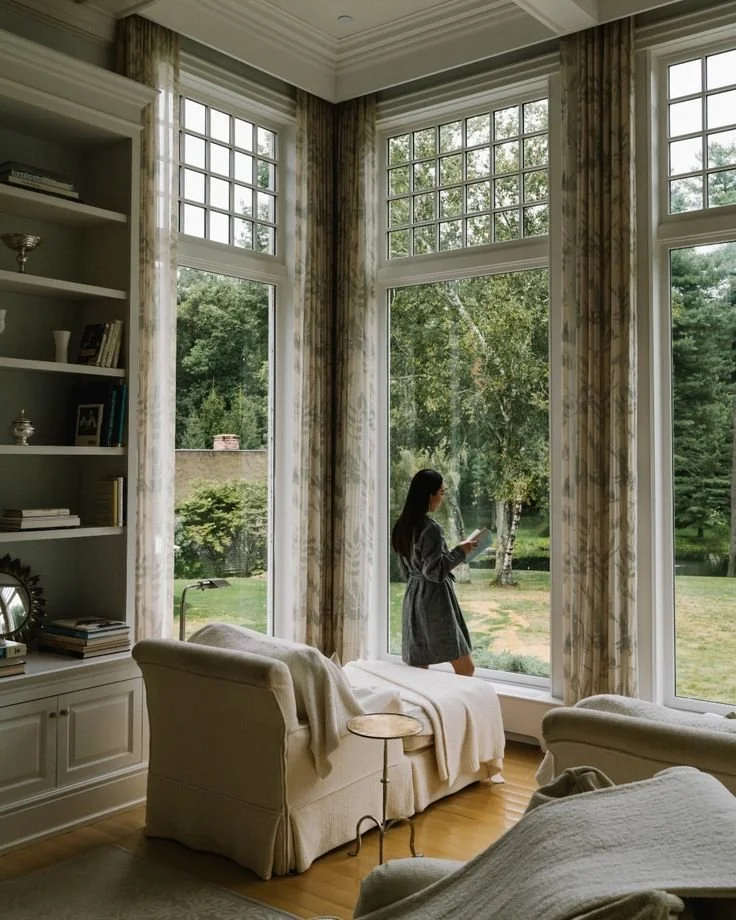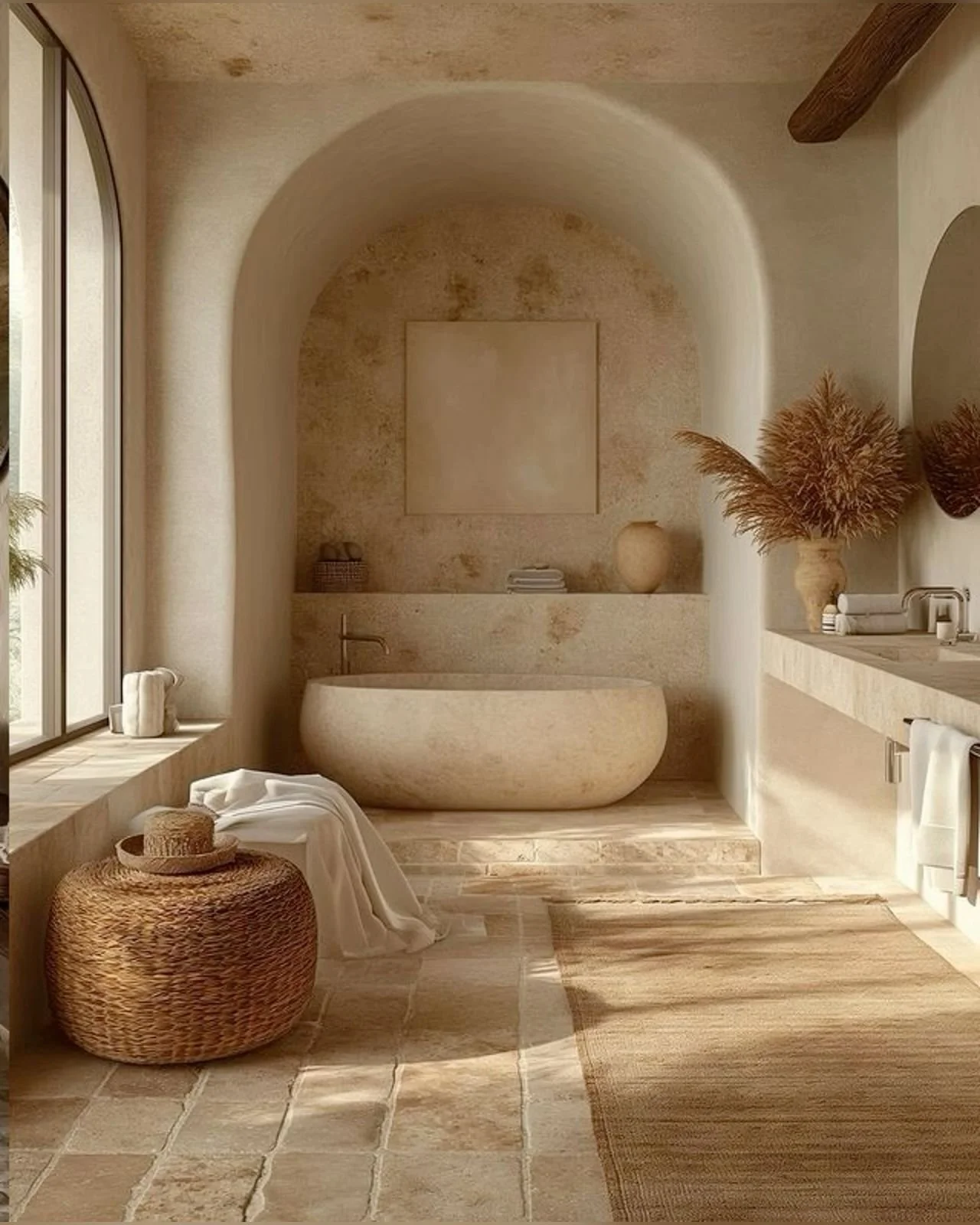Our homes stand as our primary defense against bad weather, a vital barrier that keeps us safe and comfortable through every season. As weather patterns shift and become more severe, the challenge of keeping our living spaces secure and intact deepens.
Whether facing the fierce winds of a storm, the relentless battering of rain, or the creeping infiltration of humidity, every home must be equipped to withstand nature's tests. This is especially true in areas like Atlanta, where the blend of heat, humidity, and sudden storms can put any home to the test.
Understanding how to reinforce your home against these challenges protects your property and ensures the safety and comfort of those within.
In this article, we will explore 10 practical ways to safeguard your home from harsh weather conditions, offering solutions tailored to withstand nature's more severe threats.
No. 1
Regular Roof Inspections and Maintenance
The roof over your head does more than protect your home; it serves as the first line of defense against harsh weather. Regular inspections can catch potential problems, like loose tiles or shingles before they lead to bigger issues. Maintenance, such as cleaning gutters and removing debris, ensures your roof can do its job, keeping water out and warmth in, no matter the weather outside.
No. 2
Strengthening Windows Against Extreme Conditions
Windows are your home's eyes to the world; they are also vulnerable points during severe weather conditions. Strengthening your windows is crucial. Investing in storm shutters or applying protective films can safeguard your home from high winds and flying debris.
Here are some additional points to consider:
Choose Impact-Resistant Glass: Opt for impact-resistant glass that can withstand strong winds and flying debris. This type of glass provides an extra layer of protection during storms and hurricanes.
Reinforce Window Frames: Ensure that your window frames are sturdy and well-maintained. Consider reinforcing them with metal or wood to enhance their durability.
Install Weather Stripping: Proper weather stripping helps seal gaps around windows, preventing drafts and water leakage. This simple step can improve energy efficiency and protect your home from external elements.
Consider Storm Shutters: Investing in storm shutters is an effective way to protect your windows during severe weather. These shutters offer an additional barrier against high winds and debris impact.
Regular Maintenance: Regularly inspect and maintain your windows to address any issues promptly. Replace worn-out seals, repair cracks, and keep the frames painted to prevent deterioration.
By keeping these points in mind and taking proactive steps to strengthen your windows, you can enhance your home's resilience against various extreme conditions, ensuring safety and peace of mind for you and your family.
No. 3
Updating Your Siding for Better Protection
Siding is more than just an aesthetic feature; it's a critical barrier against weather extremes, such as those experienced in Atlanta. Worn-out or damaged siding can compromise this barrier, leading to moisture intrusion and energy loss.
Consulting an Atlanta siding replacement contractor can provide insights into additional measures for protecting your home’s exterior. Proper maintenance and timely repairs are essential to ensure the longevity and resilience of your home's siding, safeguarding it against the elements for years to come.
No. 4
Seal Doors and Windows to Prevent Leaks
As briefly described earlier, small gaps in doors and windows can be major culprits for water leaks and energy inefficiency. Sealing these gaps with weatherstripping or caulk not only prevents moisture damage but also reduces heating and cooling costs.
This simple step can significantly improve the comfort and durability of your home, keeping the harsh weather outside where it belongs. Moreover, investing in high-quality weatherstripping materials and applying them correctly ensures long-lasting effectiveness, providing continuous protection against drafts and water infiltration.
No. 5
Improve Drainage Around Your Home
Water management is key to protecting your home's foundation and landscape from erosion and flooding. Properly installed and maintained gutters, downspouts, and drainage systems ensure that rainwater is directed away from your home. Additionally, landscaping techniques, such as grading the soil away from the foundation, can further prevent water from compromising your home's structural integrity.
No. 6
Invest in a High-Quality Insulation
Good insulation is the silent guardian of your home’s comfort, working tirelessly to keep the interior temperature consistent despite the weather outside. It’s not just about keeping warm in the winter; it also means staying cool during those scorching summer days.
Upgrading your insulation could involve adding more material to your attic, walls, or floors. This not only makes your home more comfortable but also reduces energy consumption, leading to lower utility bills. A well-insulated home is a fortress against the elements, providing a cozy refuge year-round.
No. 7
Protecting Your Pipes to Prevent Freezing
The risk of pipes freezing and subsequently bursting is a real threat in cold weather, leading to costly repairs and water damage. Insulating pipes, especially those in unheated areas like basements, attics, or garages, is essential.
During extreme cold, simple practices such as keeping cabinet doors open to allow warm air to circulate around pipes can prevent freezing. These precautions safeguard your home against water damage and ensure you have access to running water, no matter how cold it gets outside.
No. 8
Emergency Power Solutions
Severe weather often brings power outages, leaving homes without heat, light, or communication. Having an emergency power solution, such as a generator or solar panels, ensures your home remains functional during outages.
Generators can power essential appliances, while solar panels, paired with battery storage, offer a more sustainable option. Planning for power alternatives is a strategic move that keeps your home operational and comfortable, even when the grid is down.
No. 9
Landscape with Weather in Mind
Smart landscaping can serve as a natural defense against severe weather. Trees and shrubs can act as windbreaks, reducing the impact of high winds on your home. Properly placed vegetation can also aid in water drainage, directing rainwater away from your foundation.
Choosing local, resilient plants ensures your garden not only beautifies your home but also contributes to its protection. Thoughtful landscaping is like weaving a protective green blanket around your property, enhancing its defenses against the weather.
No. 10
Regularly Check and Maintain Your HVAC System
Your heating, ventilation, and air conditioning (HVAC) system is central to maintaining a comfortable indoor climate. Regular maintenance, including cleaning or replacing filters, checking for leaks, and ensuring the system runs efficiently, prevents breakdowns when you need it most.
An HVAC system in top condition is more than just a source of comfort; it’s a critical component in keeping your home livable during extreme temperatures, ensuring the air inside your home is clean and comfortable throughout the year.
Takeaways
Preparing your home to face harsh weather conditions is an ongoing commitment to safety, comfort, and efficiency. By taking proactive steps, from enhancing insulation to ensuring a reliable power supply and considering the landscape's role in your home's defense, you create a resilient living space.
These strategies protect your property and loved ones while providing peace of mind—knowing your home is prepared to withstand whatever the weather throws its way. Implementing these measures transforms your home into a haven, ensuring that no matter the conditions outside, the inside remains a sanctuary of comfort and security.







































